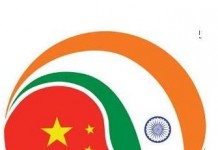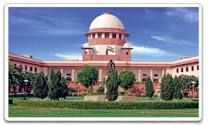https://www.moneycontrol.com/news/india/fcra-electoral-bonds-issue-supreme-court-upholds-fair-play-principles-once-again-3724051.html
The Supreme Court takes up the discomforting FCRA and electoral bonds issues and reins in govt arbitrariness
In doing so, the Apex Court re-affirmed the primary purpose of arbitration as ‘de-clogging the Court system.’ The Court held that such a pre-deposit clause was itself a ‘clog’ on entering the arbitral process and would render the same impermissibly ‘ineffective and expensive.’
RN Bhaskar – 29 March 2019
On March 11, 2019, the Supreme Court once again battled for the very principles that ensure fair play is both protected and respected. A few days ago, it also took up issues related to Electoral Bonds and amendments to the FCRA (Foreign Contributions Regulations Act)
In a stinging judgement relating to M/S Icomm Tele v Punjab State Water Supply & Sewerage Board [Civil Appeal No 2713 of 2019 arising out of SLP (Civil) No 3307 of 2018], the apex court held (https://www.sci.gov.in/supremecourt/2018/1013/1013_2018_Judgement_11-Mar-2019.pdf) as arbitrary and unconstitutional, an arbitration clause mandating a contractor of a State’s Water Supply and Sewerage Board (the State Board) to furnish a pre-deposit of 10% of the amount of its claim in arbitration at the time of invocation of arbitration. A paper published by the law firm Nishith Desai Associates analyses this quite well (http://www.nishithdesai.com/fileadmin/user_upload/pdfs/NDA%20In%20The%20Media/News%20Articles/190328_A_Indian_Supreme_Court_strikes_down_pre-deposi.pdf).
In doing so, the Apex Court re-affirmed the primary purpose of arbitration as ‘de-clogging the Court system.’ The Court held that such a pre-deposit clause was itself a ‘clog’ on entering the arbitral process and would render the same impermissibly ‘ineffective and expensive.’
In fact, such a demand is highly iniquitous. It is this unfair rule that has blocked huge funds in the road construction sector. Any dispute with the National Highways Authority of India (NHAI) eventually goes the arbitration way. That is when the NHAI requires the private party to put up 10% of the disputed amount into an escrow account. That is part of the developer’s agreement with the NHAI.
“Look at the unfairness”, says a highways developer. “A company is already broke and near bankruptcy because it was not paid its dues by NHAI. Banks refuse to lend it any more money. And NHAI wants the party to put up another 10% of the money before seeking to claim the amount from the public sector undertaking (PSU)”. Such rules make the state an oppressor, and renders the oppressed even more vulnerable than ever before.
It is quite possible that this judgement will have far-reaching implications, especially in tax related matters as well. The tax authorities want disputants to pay 20% of the amount before the sfirst stage of appeal. Worse, the tax department pays only 6% interest on such amounts, while it demands 12% from assesses for delayed payments. Such arbitrary rules which hurt the common man, and make the government an oppressive agent may now undergo a review in view of the latest judgement from the Apex Court.
A few days ago, the Supreme Court also began hearing the challenge to the amendments made to the Foreign Contributions Regulations Act (FCRA) and electoral bonds. It may be recalled that in February 2018, the government – even in the midst of pandemonium in the parliament – passed a slew of amendments without any discussion or even opposition from any of the legislators.
One such amendment related to the FCRA (https://www.moneycontrol.com/news/india/comment-corruption-collusion-and-legislative-filibustering-will-cripple-democracy-2531493.html) which shielded political parties from disclosing the source of income from other countries. Worse, the amendments shielded political parties from disclosing the source of their foreign income retrospectively for 42 years. The amendments made a mockery of existing laws, and the fact that the government had already been sent a notice asking it to explain why political parties had not disclosed the source of their contributions.
This was both unfortunate and bizzare because a political party which claimed to be nationalistic had in fact passed amendments which would expose the country’s electoral system to foreign influence – through undisclosed funds flows. Predictably, some NGOs – including the one run by EAS Sarma, former economic affairs secretary, government of India (http://www.asiaconverge.com/wp-content/uploads/2018/02/2018-02-16_EAS-Sarma-Retrospective-amendment.pdf), and the Association for Democratic Reforms (ADR) challenged this in the Supreme Court.
At the same time, another challenge against the electoral bonds also compelled the apex court to seek the views of the election commission (EC). In startling disclosures before the apex court, the EC admitted that the amendments will have “serious repercussions” on transparency (https://www.cnbctv18.com/politics/changes-in-laws-on-political-funding-have-serious-repercussion-on-transparency-election-commission-tells-supreme-court-2747791.htm)
The EC stated that the changes in the FCRA 2010, will allow unchecked foreign funding of political parties which could lead to Indian policies being influenced by foreign companies. It also stated that it had written the Ministry of Law and Justice on May 26, 2017 that such amendments would be against the endeavour to have transparency in funding to political parties.
The reply was filed in petitions challenging the issuance of electoral bonds by the government.
Clearly, the above moves will further challenge the government’s arbitrary attempts to pass laws that are not just against transparency but are also unfair to people because as the Law commission itself observed, the government is itself a “compulsive litigant”. This was observed by none else but the Supreme Court (http://sci.gov.in/supremecourt/2011/30837/30837_2011_Judgement_23-Nov-2017.pdf) which stated, “Mindful of the phenomenon of the docket explosion and the rising litigation in the country, the Union of India in order to ensure the conduct of responsible litigation framed what is today known as the National Litigation Policy (NLP), to bring down the pendency of cases and get meaningful issues decided from the judicial forums rather than multiple tiers of scrutiny just for the sake of it. The Government, being a litigant in well over 50 per cent of the cases, has to take a lead in not being a compulsive litigant.”
The judgement drew its conclusions from the observations of the NLP which stated in 2010 that “Government must cease to be a compulsive litigant. The philosophy that matters should be left to the courts for ultimate decision has to be discarded. The easy approach, ‘let the court decide’, must be eschewed and condemned.” As a result, almost 50% of the 3 crore cases pending in the courts across the country are because of the government. Despite the Supreme Court’s observation and those of the NLP, the situation has not improved.
The recent judgement about the 10% deposit, and the hearings on both the electoral bonds and the FCRA amendments should lay down clear legal precedents that legislators will now have to uphold, protect and even cherish.







































COMMENTS